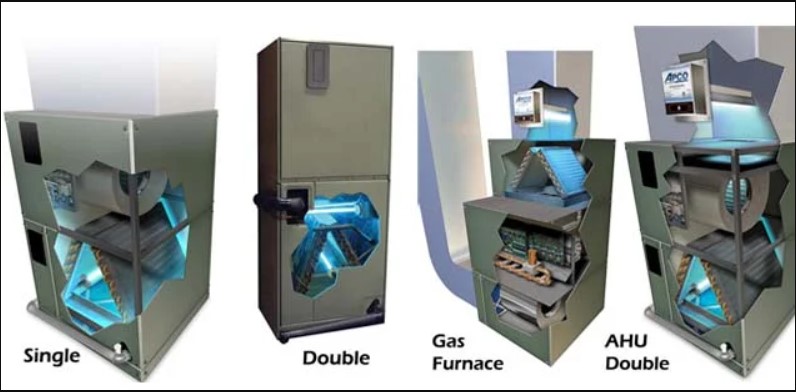
A master electrician is a professional in the electrical field. The master electrician's job is to implement lighting design ideas from lighting designers. They are responsible to connect, hang, and prepare stage lighting fixtures. They are responsible for maintaining the correct focus of stage lights. Master electricians should be skilled in multiple electrical methods.
A master electrician's job duties
A master electrician's job responsibilities include installing and maintaining electrical systems and following safety regulations. They install lighting, circuit breakers, as well as other devices that make electrical systems. They may also manage the maintenance of emergency equipment and assist with new computer installations.
A master electrician must possess a master electrician's license in Delaware or another state, or meet equivalent requirements. It is necessary to have experience reading and understanding technical drawings and schematics. Additionally, a master electrician must possess a valid driver's license.

The education required to become master electrician
Master electricians have a wealth of knowledge in all aspects of electrical wiring, including installation and repairs. These professionals are often entrepreneurs or contractors working on large-scale construction projects. They solve difficult problems and coordinate the work flow on big jobs. In some states, they are also credentialed to supervise and train others. They are required to follow all safety regulations and adhere to electrical codes. They must have strong communication skills.
Education required to become a master electrician can include an apprenticeship, a formal education, and practical training. Apprenticeships can last between five and six years. These apprenticeships are extremely focused and don't often include general education.
Master electrician's salary
The salary for master electricians is something you might be curious about if you are thinking of becoming one. The average salary for this occupation is around $78,400 a year. The highest paid master electricians make more and can command as much as $103,000 annually. This salary is almost twice that of a Journeyman Electrician. In addition to higher pay, master electricians can also expect to have a wide variety of tasks.
The salary of master electricians can vary depending on their location, education and experience. The average master electrician salary is higher in larger cities. These areas have higher living costs.

Master electricians are able to advance their careers
An array of career options are available for electricians who have a greater understanding of electrical equipment and the electrical system. Some electricians have a specialization in particular areas such as electrical wiring in commercial or industrial settings. An electrician should not forget to take continuing education classes. NECA Education & Careers, for example, offers courses on energy efficiency and renewables, working at heights and dealing with asbestos.
Master electricians are paid a variety depending on the level of their education and previous experience. Extra compensation may also be offered for overtime work. The average growth rate for master electricians over the next decade is about 5%. This growth is due in part to the growing demand for electricity both in new buildings and in existing homes. However, automation is expected to reduce the need for certain types of electrical work.
FAQ
Who has to pay for the service?
Your SCA will indicate who is responsible in paying for the service. You may be able to file a claim for compensation against the court if the service provider fails to pay in full.
Do you have any other suggestions?
Yes. Make sure to check your local laws about what type of projects you can do and what conditions you have to comply with. Some states require that you get council approval before you build. Other states say that you only need to notify them of your plans. You can check with the local authorities for their views on this issue.
What documents are required to apply for building permits?
You will also need to show proof of your SCA.
-
Visitors have ample parking space.
-
These routes can be used for access;
-
All utilities are easily accessible.
-
All works must comply with applicable planning regulations.
Can I cancel my contract at anytime?
Yes, but you must do it within 14 days after signing the contract. You can usually terminate your contract by giving written notice up to 7 working days before the end date specified in your contract. But, you could still owe the contractor money if you give too little notice.
What is the cost of applying for building permission?
It varies depending on the state and the complexity of your proposal. It can also depend on whether you are applying for permission to build or extend your existing house. The application process can take several months, so be prepared to wait until everything is finalized.
How can I get service contract agreements?
You can request a standard SCA form from your local government. You may also use our online tool to generate a quote. Once you have found out enough information, please send us your details so that we may contact you with more information.
Is a service contract a warranty?
A service contract is not a warranty. It is an agreement between the parties to exchange goods and/or services. If the product fails to perform satisfactorily, the customer will pay for the repair or replacement. This type of contract is also known as a maintenance contract.
Statistics
- While we offer all our high-quality services at competitive prices, we know that many who need our services are on fixed incomes, so we offer a 10 percent discount for seniors and military members. (homeservicecontractorsinc.com)
- (v) Place or places of performance of the prime contract and first-tier subcontracts estimated at $10 million or more, if known. (acquisition.gov)
- Depending on the client's trustworthiness and financial stability, a deposit is usually 10 to 50% of the total contract amount. (lawdepot.com)
- (3) The contracting officer may provide for a contract price adjustment based solely on a percentage rate determined by the contracting officer using a published economic indicator incorporated into the solicitation and resulting contract. (acquisition.gov)
- (1) Ascertain the extent to that offers are based on the payment of overtime and shift premiums; and (2) Negotiate contract prices or estimated costs without these premiums or obtain the requirement from other sources. (acquisition.gov)
External Links
How To
What should a service arrangement include?
An SA is a key component of any business relationship. It describes what you expect of each other and how to achieve it. It also outlines when and where the other party must fulfill its contractual obligations.
These are the key components of a successful SA:
-
The scope of work and services required by both parties.
-
Payment terms details, including start date and expiration dates for goods/services.
-
The project price must be agreed.
-
Additional charges such as VAT and other fees may apply.
-
Whether there is anything else that needs to be discussed.
-
Who will be responsible if something goes wrong with the job?
-
How disputes will be resolved.
-
What happens when one party breaks the contract?
-
What happens when there is a disagreement?
-
When does the contract come into effect?
-
What happens if one party fails to perform?
-
What length of time will you be required to pay invoices
-
Who pays for things like travel expenses.
-
Where the money comes from.
-
What happens if the client changes his mind about the project?
-
What happens if the supplier doesn't turn up.
-
Who has the right to enter the site during construction?
-
What happens when the customer cancels a project?
-
What happens if the product fails?
-
What happens when the manufacturer refuses supply?
-
What happens if the equipment breaks down.
-
What happens if the project is delayed?
-
What happens if the work isn’t completed within the stipulated time?
-
What happens when the project's quality falls below what you expected?
-
What happens if costs exceed expectations?
-
What happens if the materials aren't delivered on time.
-
What happens if the material arrives damaged?
-
What happens to the products if they are not up-to-standard?
-
What happens when the job is cancelled before completion?
-
What happens when the company goes under?